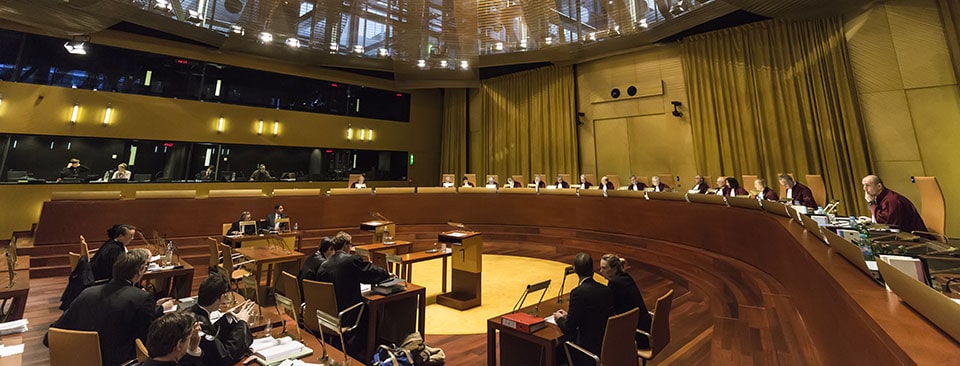 Pic: Court of Justice of the European Union
Pic: Court of Justice of the European Union
Bid to reduce top EU court’s workload
A change in the statute that governs the EU courts, aimed at reducing the workload of the higher Court of Justice, will come into effect on 1 September.
Under the change, jurisdiction to give preliminary rulings in six areas will be transferred from the Court of Justice to the General Court.
The CJEU said that the reform would allow the Court of Justice “to continue to fulfil, within a reasonable period, its mission of ensuring that, in the application and interpretation of the treaties, the law is observed”.
The transfer will apply from 1 October in the following six areas:
- The common system of VAT,
- Excise duties,
- The Customs Code,
- The tariff classification of goods,
- Compensation and assistance to passengers in the event of denied boarding, or of delay or cancellation of transport services, and
- The system for greenhouse-gas-emission allowance trading.
Complexity
The CJEU says that there has been “a significant structural increase” in disputes before the EU courts over the last five years, accompanied by an increase in the complexity and sensitivity of cases concerning, in particular, matters of a constitutional nature or related to fundamental rights.
Under the amendment, the Court of Justice will retain jurisdiction to adjudicate on requests for a preliminary ruling that, although connected to these six specific areas, also concern other areas.
The higher court will also have jurisdiction when a request in one of these areas raises independent questions linked to the interpretation of:
- Primary law – including the Charter of Fundamental Rights of the European Union,
- Public international law, or
- General principles of EU law.
The General Court will also be able to refer to the Court of Justice a case that falls within the lower court’s jurisdiction, but requires a decision of principle likely to affect the unity or consistency of EU law.
Every request for a preliminary ruling, however, must still be submitted to the Court of Justice to determine whether it can be transferred to the General Court.
Boards of appeal
A separate change is aimed at reducing the number of appeals to the Court of Justice in cases that have already been considered twice – by the General Court and by an independent board of appeal of an EU office or agency.
Under the current system, four such boards of appeal are specified. This will now be extended to ten.
In such cases, an appeal to the Court of Justice will be allowed only when it raises “an issue that is significant with respect to the unity, consistency or development of EU law”.
Gazette Desk
Gazette.ie is the daily legal news site of the Law Society of Ireland